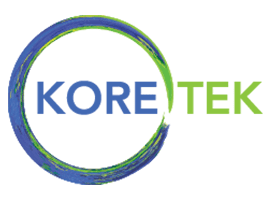Business phone systems are now required to provide specific notifications to 911 dispatchers when a 911 call is made. These notifications include informing the dispatcher that an emergency call has been made. Additionally, the phone system must convey the call-back number associated with the call to aid in establishing contact with the caller if the call gets disconnected. ‘
Furthermore, the system should provide a “dispatchable location,” which consists of essential details like a street address, building number, floor number, room number, or similar information. This information helps first responders accurately identify the location of the caller and ensures they receive the necessary assistance during the emergency call.
A breakdown of the important laws and mandates follows:
NG911 Law: The Next Generation 911 (NG911) law focuses on upgrading emergency communication systems to modern, digital networks. It aims to enhance the capabilities of emergency response by enabling text messages, photos, and videos to be sent to 911 centers. NG911 also strives to improve location accuracy for emergency calls made from mobile devices, ensuring faster and more efficient emergency assistance.
- Enhanced emergency response: The NG911 law enables businesses to leverage modern communication technologies, such as text messages, photos, and videos, to communicate critical information to emergency dispatch centers. This facilitates more effective and efficient emergency response, potentially saving lives and minimizing damages.
- Improved location accuracy: The law emphasizes the importance of accurate location information when making emergency calls from mobile devices. For businesses, this means that emergency services can precisely locate their employees or customers in need, enabling quicker response times and targeted assistance.
- Enhanced communication capabilities: NG911 allows businesses to communicate with emergency services using various digital means, providing flexibility and accommodating individuals who may have difficulties with traditional voice calls. This inclusivity ensures that everyone can access emergency assistance when needed.
Kari’s Law: Kari’s Law is named after Kari Hunt Dunn, a woman who tragically lost her life while her daughter attempted to call 911 but couldn’t reach emergency services because she didn’t know she had to dial an extra digit to reach an outside line. This law mandates that all telephone systems must allow direct dialing to emergency services without the need for additional digits or codes. It seeks to eliminate barriers and ensure quick access to emergency help.
- Direct access to emergency services: Kari’s Law mandates that businesses must provide direct dialing to emergency services without the need for additional digits or codes. This ensures that employees, customers, or anyone on their premises can quickly and easily reach emergency assistance in critical situations.
- Simplified emergency calling: By eliminating the requirement for dialing additional digits, Kari’s Law removes potential barriers or confusion during emergency situations. It simplifies the process and ensures that individuals can promptly connect with emergency services without any unnecessary delays.
- Compliance and legal obligations: Understanding and complying with Kari’s Law is essential for businesses to meet their legal obligations. Failure to adhere to the law’s requirements may result in penalties or legal consequences. By being aware of and following Kari’s Law, businesses can demonstrate their commitment to providing a safe environment for employees, customers, and visitors.
Baum Act: The Ray Baum Act was introduced to address the issue of providing accurate location information during 911 calls. It requires that when someone calls 911, their location information, including their street address and additional details like floor or suite number, should be conveyed to the emergency dispatch center. The law also considers the challenges posed by modern communication technologies like virtual private networks (VPNs) and unified communication platforms and encourages solutions to ensure accurate location identification for emergency response purposes.
Overall, businesses that understand and adhere to the NG911 law and Kari’s Law contribute to a safer environment for their stakeholders by enabling effective emergency communication, faster response times, and accurate location information during critical situations.
Cisco Systems, Inc. also provides an excellent overview of the importance of NG911, Kari’s Law and the Baum Act.
About Us
Founded by optical network specialists, Kore-Tek is widely recognized for their unparalleled expertise in critical network infrastructure, providing everything from fiber network architectures to multi-technology optical networking, routing and switching implementations.
Trusted and credentialed by major equipment manufacturers and technology service providers — and backed by decades of experience — Kore-Tek engineers have planned, designed, and managed some of the most relied-upon public and private networks in use today, improving network operations and making complex, next generation digital transformations, simple.
Businesses depend on networks. Network professionals depend on Kore-Tek.
